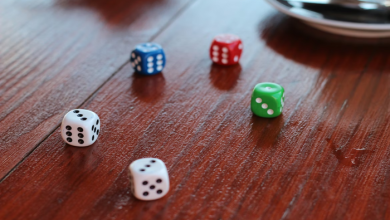
Tournament poker produces millionaires through a combination of skill, preparation, and calculated risk-taking. The players who accumulate the most prize money share specific traits: they study constantly, adapt their strategies based on opponents, and maintain emotional control during extended playing sessions. These five players have won more money at live tournaments than any others in poker history.
Bryn Kenney Leads All-Time Earnings
Bryn Kenney holds the record for highest career tournament earnings at $65.1 million. His largest single cash came from finishing second in the 2019 Triton Million for Charity event in London, where he collected $20.5 million. Kenney started playing online poker at age 20 and transitioned to live tournaments after Black Friday shut down major poker sites in 2011.
Kenney’s approach differs from traditional tournament strategies. He applies maximum pressure in spots where opponents show weakness, often betting three or four times the pot size when sensing hesitation. This aggressive style works because Kenney reads physical tells better than most professionals. He watches breathing patterns, hand movements, and posture changes to determine when opponents hold strong or weak hands.
His preparation involves studying game theory optimal solutions for six to eight hours between tournament days. Kenney also maintains detailed notes on every regular player in high-stakes tournaments, tracking their betting patterns across different stack depths and positions.
Justin Bonomo’s Mathematical Precision
Justin Bonomo has earned $62.3 million in live tournaments through mathematical analysis and disciplined bankroll management. He calculates pot odds and implied odds faster than dealers can count chips, allowing him to make profitable decisions in time-pressured situations. Bonomo’s breakthrough year came in 2018 when he won $25 million, including first place in the $1 million Big One for One Drop.
Bonomo started playing poker at age 19 and quickly recognized that emotions destroy profitability. He developed a system for tracking his mental state during sessions, rating his focus level from one to ten every hour. When his rating drops below seven, he tightens his starting hand requirements and avoids marginal spots until his concentration returns.
Stephen Chidwick and Silent Observation
Stephen Chidwick accumulated $44.1 million in tournament winnings while speaking fewer words at the table than any other top professional. British players call him “Stevie Wonder” because his poker decisions seem impossible to explain through conventional logic. Chidwick finds profitable spots that computer simulations miss because he factors in opponent-specific tendencies that algorithms cannot quantify.
His preparation routine includes watching tournament footage without sound, forcing himself to read situations through visual cues alone. Chidwick believes verbal information distracts from more reliable physical indicators. He tracks opponents’ chip-handling speeds, noting that players typically move chips faster when bluffing and slower with strong hands.
Erik Seidel’s Four-Decade Dominance
Erik Seidel has won $42.6 million across four decades of professional poker, adapting his style as the game changed. He finished second to Johnny Chan in the 1988 World Series of Poker Main Event, then continued winning major tournaments through 2023. Seidel’s longevity comes from recognizing that poker strategies expire and require constant updating.
Seidel treats poker like a business rather than gambling. He maintains spreadsheets tracking his performance across different tournament structures, buy-in levels, and field sizes. This data shows him which formats produce the highest return on investment, allowing him to schedule his tournament calendar for maximum profitability. He avoids events where his historical win rate falls below 15 percent, regardless of prize pool size.
David Peters and Late-Stage Mastery
David Peters earned $42.3 million by specializing in final table play and short-handed situations. He wins a higher percentage of tournaments after reaching the final nine players than any other professional. Peters achieves this through intensive study of Independent Chip Model calculations, which determine the real-money value of tournament chips at different stages.
Peters practices final table scenarios using specialized software that simulates different stack distributions and payout structures. He runs thousands of simulations weekly, testing different strategies against various opponent types. This preparation allows him to identify profitable spots that appear risky but actually increase expected value.
His physical conditioning also contributes to his success. Peters exercises for two hours each morning during tournament series, maintaining energy levels while opponents fatigue. He tracks his decision quality throughout tournaments, noting that most players make their worst mistakes after ten hours of play. Peters exploits this by increasing his aggression during late-night sessions when opponents’ judgment deteriorates.
Tournament Players’ Background Training Methods
Professional tournament winners spend thousands of hours preparing before major events. Daniel Negreanu practices heads-up scenarios for eight hours daily, while Phil Ivey studies opponent tendencies through video analysis. They play online sessions, participate in smaller buy-in events, and practice various poker games to sharpen different skills. Mixed game formats help them think differently about hand ranges and betting patterns.
This preparation extends beyond Texas Hold’em tournaments. Players like Jason Mercier built their foundation through Pot-Limit Omaha cash games, and Vanessa Selbst refined her aggressive style through Seven-Card Stud sessions. The mental stamina required for 14-hour tournament days comes from consistent practice across multiple formats and stakes.
Skill Development Through Failure Analysis
These five players share one practice that separates them from recreational players: they analyze their losses more thoroughly than their wins. Each maintains databases of hands where they made mistakes, reviewing these errors weekly to identify patterns. They recognize that poker mastery comes from eliminating leaks rather than perfecting strengths.
The financial success of these players proves that tournament poker rewards preparation and continuous learning. While luck determines individual tournament outcomes, skill determines long-term profitability across hundreds of events.




